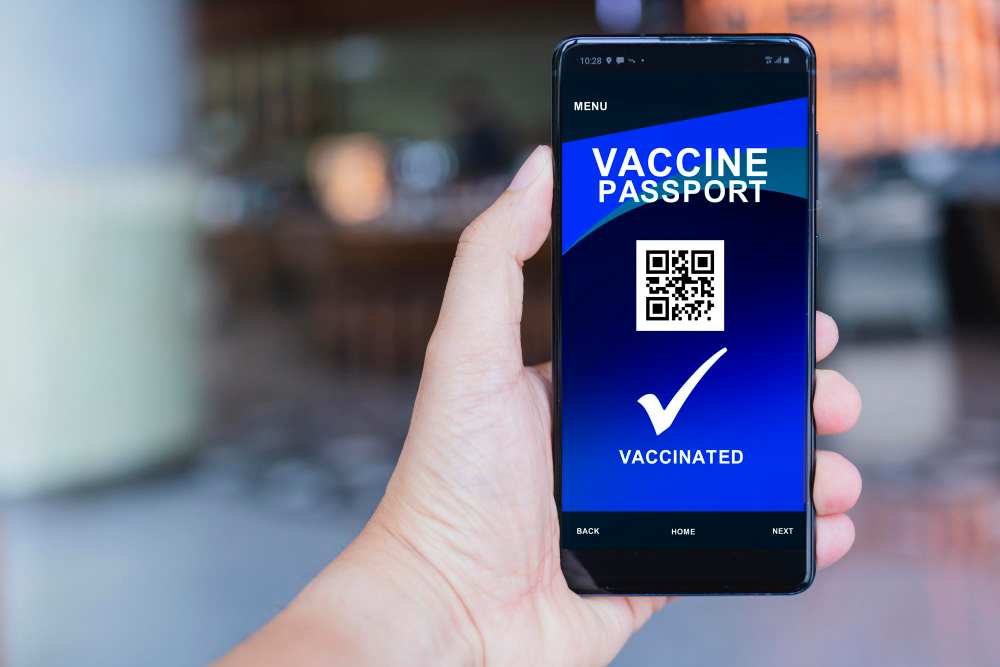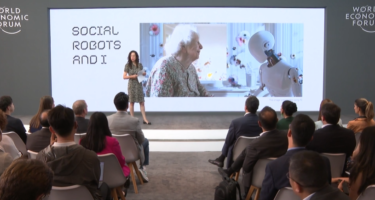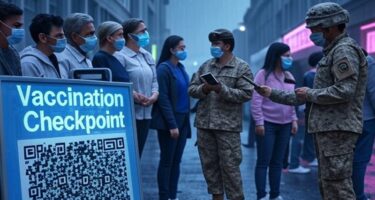Why are government officials & WHO members still saying vaccine passports enabled ‘freedom of movement’ when they were never about preventing transmission? perspective
A panel at the World Health Summit praises vaccine passports, aka “digital health certificates” for allowing freedom of movement despite the fact they were never proven to prevent transmission.
During last month’s World Health Summit, a panel on “Digital Health Trust Networks” concluded that vaccine passports played a key role in facilitating travel and the freedom of movement while ignoring guidance from the World Health Organization (WHO), which published a report in August, 2021 stating:
“A health pass based solely on individual vaccination status may increase the risk of disease spread […] The extent to which each vaccine prevents transmission of SARS-CoV-2 to susceptible individuals remains to be assessed”
World Health Organization, August 2021
At the World Health Summit panel, European Commission deputy director for health systems modernization Maya Matthews said that “there was definitely this core group who believed that we could create this digital COVID certificate, which would enable freedom of movement again to get some parts of our lives back to some sort of normality.”
Stefanie Weber of Germany’s Federal Institute for Drugs and Medical Devices said that one of the key benefits of the vaccine passport network was “being able to move around with the [COVID] certificate and use this certificate for other use cases like entering a restaurant and entering public buildings and so on, which was not really the scope of what the certificate was developed [for] in the first place.”
The next speaker on the World Health Summit panel was Romaric Agbagla, chief technology officer at Agence Togo Digital.
Togo was the first Sub-Saharan African nation to adopt the European Union’s digital vaccine passport scheme, of which Agbagla said, “It was a great opportunity for us to join the EU DCC [Digital COVID Certificate] network.
“Firstly, it allowed liberty of movement for our citizens at that time. Everything was restricted, and the citizens were happy to now move around again.
“Secondly, it was also kind of a validation of our COVID-19 digitalization process […]
“Three, it’s opened a new area of innovation as now we are issuing verifiable credentials for different use cases. It’s not anymore for COVID-19,” he added.
Next on the digital health agenda is something called a digital patient summary.
According to the European Commission, the digital patient summary “provides information on important health related aspects such as allergies, current medication, previous illnesses, surgeries, etc. It is part of a larger collection of health data called an electronic Health Record. The digital Patient Summary is meant to provide doctors with essential information in their own language concerning the patient, when the patient comes from another EU country and there may be a linguistic barrier.”
At the World Health Summit panel, David Novillo, unit head of data and digital health at the WHO, said of the digital patient summary, “That’s my dream as a person — to have the possibility to travel with my personal record and if something happens to me, at the least the health worker that will attend me if I have a problem can have some basic information about me.”
“No substantive data are available related to impact of the vaccine on transmission or viral shedding“
World Health Organization, August 2021
Why are government officials and members of the WHO still saying that vaccine passports enabled “freedom of movement” when they were never proven to prevent transmission, and at least in the case of Pfizer, never even tested for it?
When countries began mandating vaccine passports in 2021, the CDC, FDA, and WHO all stated that the COVID “vaccines” had not been proven to prevent transmission.
According to the July 14, 2021 update from the World Health Organization, “More evidence is needed to determine exactly how well they [the vaccines] stop infection and transmission.”
Likewise, the Center for Disease Control and Prevention (CDC) claimed, “The risk for SARS-CoV-2 infection in fully vaccinated people cannot be completely eliminated as long as there is continued community transmission of the virus.”
When it came to the AstraZeneca shot, “No substantive data are available related to impact of the vaccine on transmission or viral shedding,” according to the WHO.
And according to the Food and Drug Administration (FDA), “The scientific community does not yet know if the Pfizer-BioNTech COVID-19 Vaccine will reduce such transmission.”
Last year, a Pfizer director admitted during a hearing in the European Parliament that Pfizer never even tested its product on preventing transmission.
“Pfizer director admits vaccine was never tested on preventing transmission. ‘Get vaccinated for others’ was always a lie”
MEP Rob Roos, European parliament, October 2022
What was the point of imposing COVID passports, for domestic use or otherwise, if the virus continued to spread whether someone was fully vaccinated or not?
The reality is that vaccine passports were implemented to coerce, incentivize, or otherwise manipulate people into getting the jab under the threat of being barred from participating in many aspects of society without it.
Contrary to the World Health Organization’s own guidance, which called on member states not to enact vaccine passports for purposes of mobility due to the lack of data on transmissibility, the WHO announced on June 5, 2023 that it “will take up the European Union (EU) system of digital COVID-19 certification to establish a global system that will help facilitate global mobility.”
Image by Lifestylememory on Freepik











